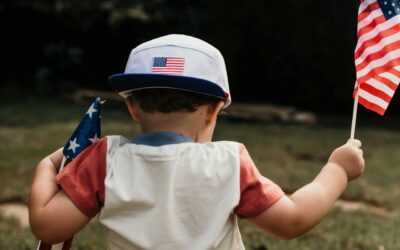Today’s Independent features a piece by Alice Jolly, mother to daughter Hope who was born through a surrogacy arrangement in the US, and who we are proud to be working with. Well done to Alice for her bravery in speaking out to highlight her experience. As she says so compellingly, she and husband Stephen are by no means the only parents who have come to us having decided that the adoption process in the UK is just too long, hard and uncertain. Alice describes their experience of US surrogacy and how it has enabled them to build their family in another way. With aptly named Hope in arms they are, she says, “the luckiest people in the world”.
Here is Alice’s article in full, which you can also read at the Independent online
Surrogacy: Parenting the hard way
Alice Jolly and her husband knew they could offer a loving home to one of the thousands of British children awaiting adoption. So why were they forced to go abroad instead and use a surrogate to get the child they longed for?
Tuesday 15 November 2011
JOHN LAWRENCE
The scene: a church hall in Oxford three years ago. My husband, Stephen, and I are attending a seminar for couples who want to adopt. A social worker stands beside a whiteboard and explains the process. I look around at the other couples. Their eyes are blank, puzzled. Some start to yawn while others scratch their heads. The social worker has become a tic tac man at a race course, frantically waving her arms, speaking a language that no-one understands. We all start to stare at our shoes. It’s becoming embarrassing – what are we doing here and who put these people in charge of something so important?
A man in the audience is trying to raise his hand but his wife keeps pulling his arm back down. He refuses to be silenced. “So any 16-year-old girl can go into an alleyway on Saturday night,” he says, “and have a knee-trembler with a bloke whose name she doesn’t know, and no one is ever going to ask about her suitability for motherhood. But I’m going to have to go through all this just to be a father?”
The room is silent. The man’s wife is tearful. A social worker crouching in the corner makes a note in her black book. We all know that this couple have fallen at the first hurdle. And yet he has only said what everyone in the room is thinking.
As we have a six-year-old son, Stephen and I decide that it might be best for us to adopt a child under two. No children under two are available for adoption in the UK – or at least none are under two by the time they emerge from our adoption system. And so we go to a seminar in North London about overseas adoption. There we are made to play a bizarre board game. Adoption Monopoly? Or is it Snakes and Ladders – but without any ladders? Each couple has a marker to move around the board. Cards are drawn from a pack. They say, “your paper work has been lost, go back three months.” Or, “the country you have chosen is now closed for adoption, go back to square one.”
Finally, it comes to our turn. “So, Stephen and Alice, where are you up to now?”
“Well, I’ve just retired,” Stephen says, pretending to read the card.
No one dares laugh or it’ll be back to the beginning for them. We break for a coffee and chat to other people. One couple can’t currently be considered for adoption because, although they are home owners and employed, they have £5,000 of credit card debt. Another couple used to live in Bedfordshire, and they got two years into the adoption process, but then they moved to Berkshire so they had to begin again.
After coffee, the discussion focuses on the difficulties experienced by adopted children. Two men interrupt – one is black, the other of Asian origin. Both of them were themselves adopted. The lady running the seminar is clearly uncomfortable with real-life multi-cultural adoption stories. But she presses them to express the anger they must surely feel towards their adoptive parents.
“Anger? I was in an orphanage in Thailand and my Mum and Dad adopted me, brought me back here, gave me everything. From an early age I wanted to be a musician and they made that possible. How could I possibly be angry?”
Then the black guy says: “I was adopted from Ghana and for me it was certainly traumatic. Because every year my adoptive family in Hampstead wanted to celebrate Ghanaian National Day. So all my flabby, white relatives dressed up in African costumes and played drums. Man, I’ve been on the pyschiatrist’s couch for years…” Doubtless the names of these two have gone into the black book as well.
A one-to-one meeting with a social worker follows. It’s a scene from The Trial, by Kafka. We have to convince her we want a child, but we must not appear to want one too much. We tell our story: a stillbirth, four miscarriages, failed IVF. The social worker thinks we have too much baggage – but surely the truth is that most people who adopt do so because other plans have failed?
I mention that we’ve been told that adopting from Russia will probably take two years. No, she says. It will take four and most of the Russian babies have foetal alcohol syndrome. I have talked to a number of families who have adopted from Russia and they tell a different story – but I can’t say so. And so it goes on. No and no and no. We are guilty until proven innocent. Everything is a problem – the fact that we’ve lived abroad, that we have an existing child, that we both went to boarding school, that once every two months Stephen might smoke a cigarette in a bar.
But strangely, the biggest problem is that we are about to have building work done in our house. Until that work has finished, we can’t even start the process.
As we drive home, Stephen is fuming and I am in tears. I know the social worker is playing games, trying to find out if we are serious. But could she not have offered some support or encouragement? I know that adoption isn’t easy – and that it shouldn’t be easy. But does it have to be negative, intrusive, judgemental and so painfully inefficient? Would they rather leave 100 children in care than relax their impossible demands for perfection?
Six months later we meet a lawyer who specialises in gestational surrogacy in the US. Nearly everyone who crosses her threshold has tried to adopt and given up. And US surrogacy? Well, it’s expensive and legally complex – but it can be done. We get in touch with agencies in the States. Yes, they say. Yes and yes and yes.
But I am unconvinced. To me, surrogacy seems bizarre and extreme. It’s from the world of lawsuits and reality TV shows. But then I talk to people with real experience of surrogacy and uncover a world that couldn’t be more different from those sensational media stories. A world in which women are genuinely trying to help other women overcome the pain of infertility.
Two weeks ago we came back from America with our baby daughter. She is called Hope. We are the luckiest people in the world. Throughout the whole process, I continued to doubt whether surrogacy can really work well for everyone involved – now I know that it can. But still I am left with questions about why we couldn’t have given a home to an existing child instead of creating a new one. And some part of me will always be haunted by that baby who we might have adopted – and who is probably still waiting for a family and a home.
Proceeds from this article have been donated to SANDS (Stillbirth and Neonatal Death Society) uk-sands.org
The UK’s leading surrogacy lawyers
Find out more about how we support families through surrogacy



